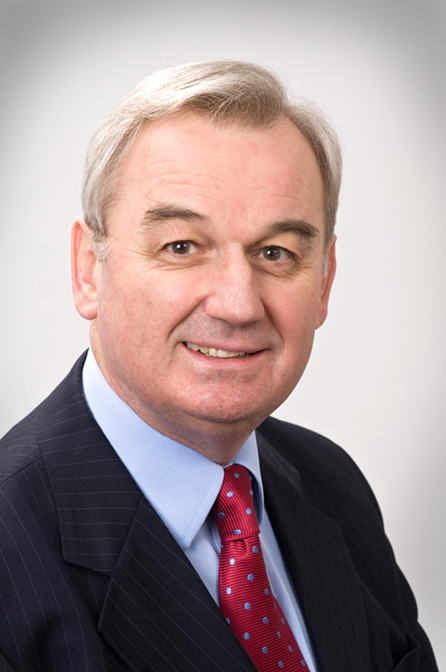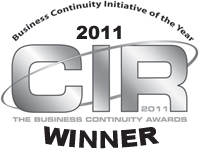IOR Annual General Meeting 29th November 2012
I’m going to keep this address fairly brief because we must have plenty of time for the later presentation and discussion of the work done by Council members on the Review of Strategy, Organisation and Governance.
You have seen the formal report of the year to 31/3/12. It showed further progress by the Institute including the inaugural meetings of chapters in Nigeria and Germany. Membership numbers continued to rise. Although not yet ten years old, already 40% of our membership is outside the UK.
Our aim is to serve our members by providing opportunities to gain expertise and knowledge of the discipline and providing the means of recognition of this. At the same time the Institute seeks to use its leading position in the discipline to inform and influence thinking and understanding of Operational risk: in public, with regulators and legislators, and in firms’ management.
We continued to review and accredit academic courses and to endorse conferences and courses of short duration. We were asked for a reading list for Leicester University students, which was an interesting exercise for those of us who did it. A team has been working on the concept of an IOR course and designs are well advanced. The Sound Practice Guidelines continue to be published, two in 2011-2012, and three underway at present. The IOR contributed to the debate over the Vickers Banking Commission, and has contributed to the Tyrie Parliamentary Commission. Members are actively engaged in major enquiries and projects, from the LIBOR Review through the development of an improved British Standard for Risk Management, to promoting better attitudes to risk, behaviours, and values at the personal level in the City Values Forum. In Singapore, one of our directors is repeatedly delivering a course on Risk Management at the leading University for Science and Technology.
The life of organisations is never smooth, and so it has been with us since we last met. Our IT Provider found an attempt had been made to use our website for a bot attack and advised that we should upgrade our IT, that is to say bring forward something we’d planned for later years. This involved moving to a new content management application, the underlying system, so it was quite fundamental. It was a major piece of work, and even the user testing took some time. However we are now up and running.
In the meantime preference was given to applications, building our member numbers and supporting revenues.
The most evident consequence is that we were unable to issue renewal notices and reminders of renewal. It is only now that we can start catching up with the back load. I hope the members affected will recognise that this has not affected the services provided to them, including the website.
Of course the delays in renewals have had an effect on the Institute’s immediate revenues. The Council in prudence responded to this and the unplanned expenditure on the IT upgrade, by constraining expenditure elsewhere, for example in using PR services and doing more of that from our own resources and that of some members’ firms.
Membership numbers at 31/3/12 were 278. Since then there has been a drop in application flow as a result of stronger enforcement of application criteria – we were getting a lot of spurious applications and casual applications. Regarding renewals, we will have to await the response to chasers this week for the delayed renewals. It is worth bearing in mind that whilst we have many long term members, all membership organisations experience a cycle where some members join and may then leave after two or three years. We do not yet know how strong an effect that will be this year.
Once again it is a pleasure to report the international progress of the Institute. Our newest chapters in Nigeria and Germany continue activities which are well supported and I get enquiries from other places. If we made every enquiry a Chapter we would do very well. However to minimise the chance of false starts and representation problems further ahead, we always ask interested people to pull together a group of three or more who can share the load.
Scotland
In Scotland there have been four events this year, including the Second Annual conference of the Chapter last month. Again this was well attended, and the quality of the speakers was commented on very favourably. I am grateful for the work done by the Committee there comprising Katie Cowan, Allan Barr, Brian Rowlands and new members of the Committee, Trish Crabb, Nigel Watt, and Christoph Woell, led by Caroline Tinsley who does a great deal to bring together all the contributions.
Nigeria
As previously reported the inaugural meeting took place in April 2011. Since then 5 seminars have been held, including two since the last AGM in March. The Chapter is going through the formal process of Registration in Nigeria. We are grateful to the United Bank for Africa for their continued support of the chapter. The Chapter Working Team comprises Edima Ben Ekpo as leader and here today, and OIaniyi Olalemi, Chika Nwachukwu, Eneni Oduwole, Samuel Ekanem, Esther Ekpe and Akinola Odedina.
Germany
In the year under review the chapter held four events solo or in partnership and a further three since our last AGM. These have been well attended as I saw myself when I attended one. In addition Walter and his colleagues have generated interest and furthered the discipline through articles in outside publications as well as our own, and taking a high profile at conferences, and the sound Practice Guidelines.
German activities are led by Walter Dutschke, with Dr. Gerrit-Jan van den Brink, Prof. Dr. Thomas Kaiser, Joachim Pfeifer and Bodo Schmidt.
Far East
Our first Chapter continues its strength and vigour. As well as events for the members, some of the Committee have promoted the development of Operational Risk Management in the region. I mean no disrespect in not setting out the specifics because the list is so long. But I can say that they, and Dominic Wu more than anyone, have put a lot of time into teaching at universities in Hong Kong and Singapore, and also mentoring students. They are sought out for speeches and presentations, and to join Fora. They contributed to preparing the ORM Handbook published by the Hong Kong Institute of Banking. Through all this, members there have contributed to some of our Sound Practice Guidance, to the Application Assessments and to Newsletter production.
Chaired by Dominic Wu, the committee comprises Sue Pang, Liza Ching, William Tang, Wing Cheng, Ben So, Raymond Poon, Jacky Leung, Raymond Lee, Kelvin Lok, Sondra Park, and Viviek Chatrath. Sue Pang and Liza Chung have also helped with the IOR Newsletter and with Guidelines for which we are very grateful.
London
We have had six events this year which have been well attended. I am grateful to John Chapman and Helen Pykhova who organised them. A number of presentations at conferences have been made, and sometimes it has felt like an IOR get together. These presentations have been in the UK and abroad, and just speaking for myself I have done numerous presentations, including in Geneva (with Simon) Moscow and Budapest. I generally slip in a sales piece for the IOR and I would urge all to do that when the occasion arises.
I would like to acknowledge and thank a number of people who have given a lot of time to the Institute on the Executive Committee: Asim Balouch, Stephen Murgatroyd, Michael Faber, Alan Dunk, Trevor Bedeman, John Chapman, Pravinder Arora, Brian Rowlands, Jimi Hinchliffe, Daniel Golding and others who have supported them.
Since the last AGM, Jonty Birrell-Gray decided to resign as Treasurer and Director. Increased demands elsewhere meant, with regret, he could not give the time and attention to the IOR responsibilities that he felt it needed. We were very sorry to hear that. The books Jonty picked up from the previous Treasurer, who himself had done a great job in the years of founding the IOR, were brought into line with the normal procedures of accountants in established organisations. Jonty did that very quickly, updated the banking arrangements, and handled the introductions of chapters apparently effortlessly. At all times, Jonty’s advice was invaluable. I delighted that Jonty is here tonight and can hear this expression of great appreciation and thanks.
Earlier this year Council commissioned a survey of members. It was the most extensive survey we have ever done. We were told that the three most important features of the Institute to members were networking, events and professional accreditation. Whilst we have aimed of these, the survey has provided direction to the Strategy Review.
I retire as director after having the honour to serve the maximum term, and I thus conclude my time as Chairman of the Council. The work I have been able to do has only been possible because of the support and involvement of many members. I am very grateful to all of them for their part in the running and development of the IOR, the promotion and development of the discipline, and providing the professional development opportunities we do. It has had its frustrations when the constraints of a voluntary body with limited resources of time and money hold us back, and especially when unexpected events temporarily divert us from our plans. But in the years I have been giving time to the IOR from its inception, (Michael Faber and I have both held positions since the start, and now Michael will be out there on his own!) figuring out how it will work, running the events steam and now this, it has always been a source of satisfaction. I look forward of course to still being an active member and will of course continue to support the IOR to all who will listen!
I would like to finish by telling of two stonemasons in the yard dressing stone. They were asked what they were doing. One said “I’m shaping this stone so that it will fit perfectly in the walls.” The other said “I’m building a cathedral.” We likewise are engaged in a task in building this Institute and the discipline, with two perspectives in mind.
This is the prepared text of the Chairman’s Report, which due to pressure of time in the meeting was delivered slightly abbreviated.



